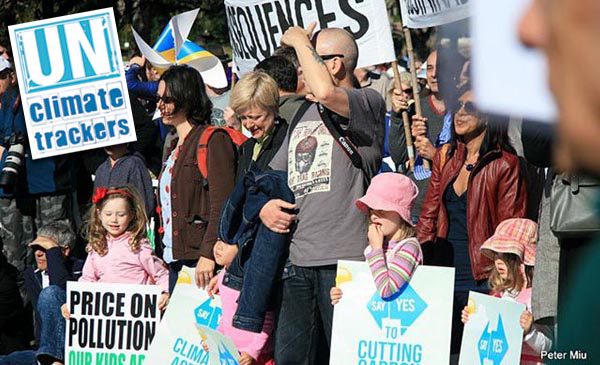After almost a week of climate change negotiations in Bonn, Germany, some progress is being made with countries setting out their plans for the Climate Summit in Durban later this year.
Significantly, whilst Australia’s negotiating team in Bonn were bogged down in process and agenda setting, almost 50,000 people across Australia attended World Environment Day events, to say Yes to action on climate change, Yes to a price on pollution and Yes to a clean energy future. This demonstration of people power signals a great level of community support for action on climate change and the need for Australia, as the world’s biggest per-person polluter, to do more.
The need for the world to do more, particularly developed countries, was further supported by figures released this week by the Stockholm Environment Institute (SEI), highlighting that the emission reductions of China, India, South Africa and Brazil could be slightly greater than the combined efforts of the US, Europe, Japan, Canada, Australia, New Zealand and Russia – by 2020. The study commissioned as part of Oxfam’s new GROW campaign, also showed that the total emissions cuts pledged by all countries are not sufficient to prevent global temperatures rising above the two degrees target agreed by governments in December 2010 at the UN Climate Change talks in Cancun, Mexico.
In other developments this week at the negotiations, Canada won 1st, 2nd & 3rd place in the Fossil of the Day award for performing badly at the climate change negotiations. This week at least, I felt happy to come from the land down under and not from the country of the big red Red Maple leaf.
Clancy Moore is reporting on the UN negotiations in Bonn as part of Oxfam Australia’s UN Climate Tracker project



